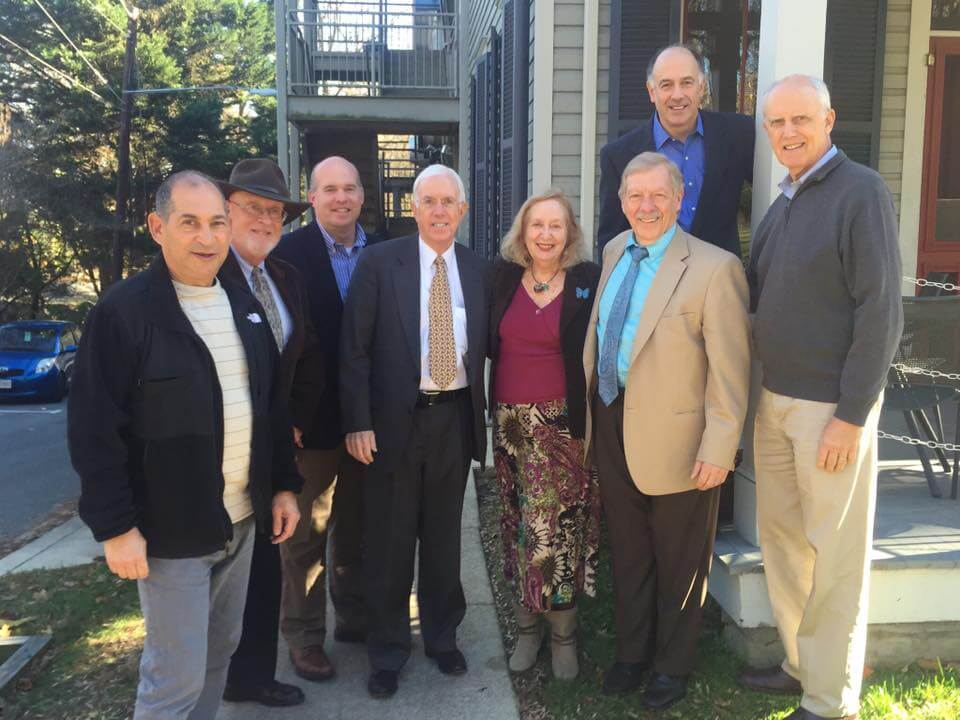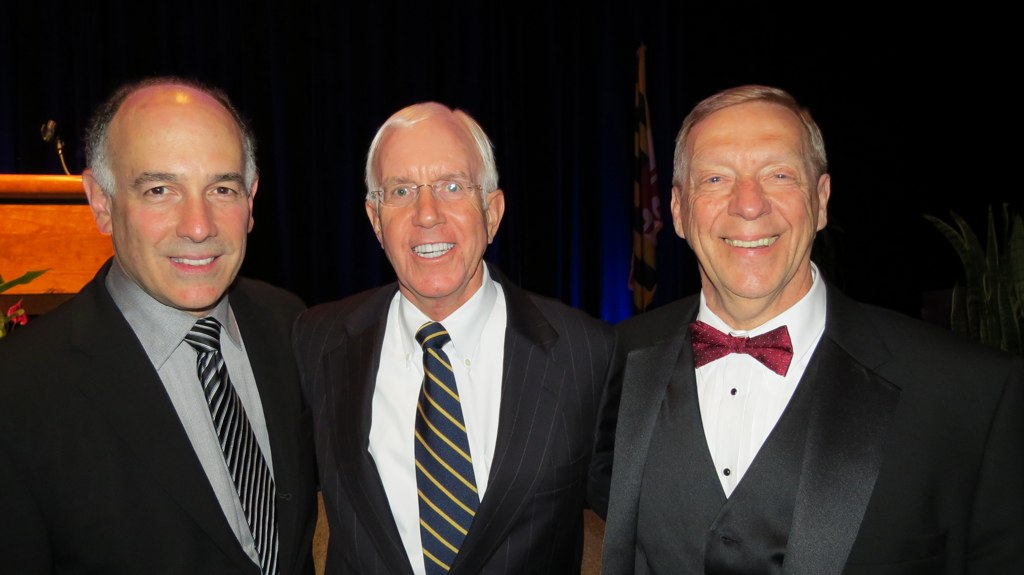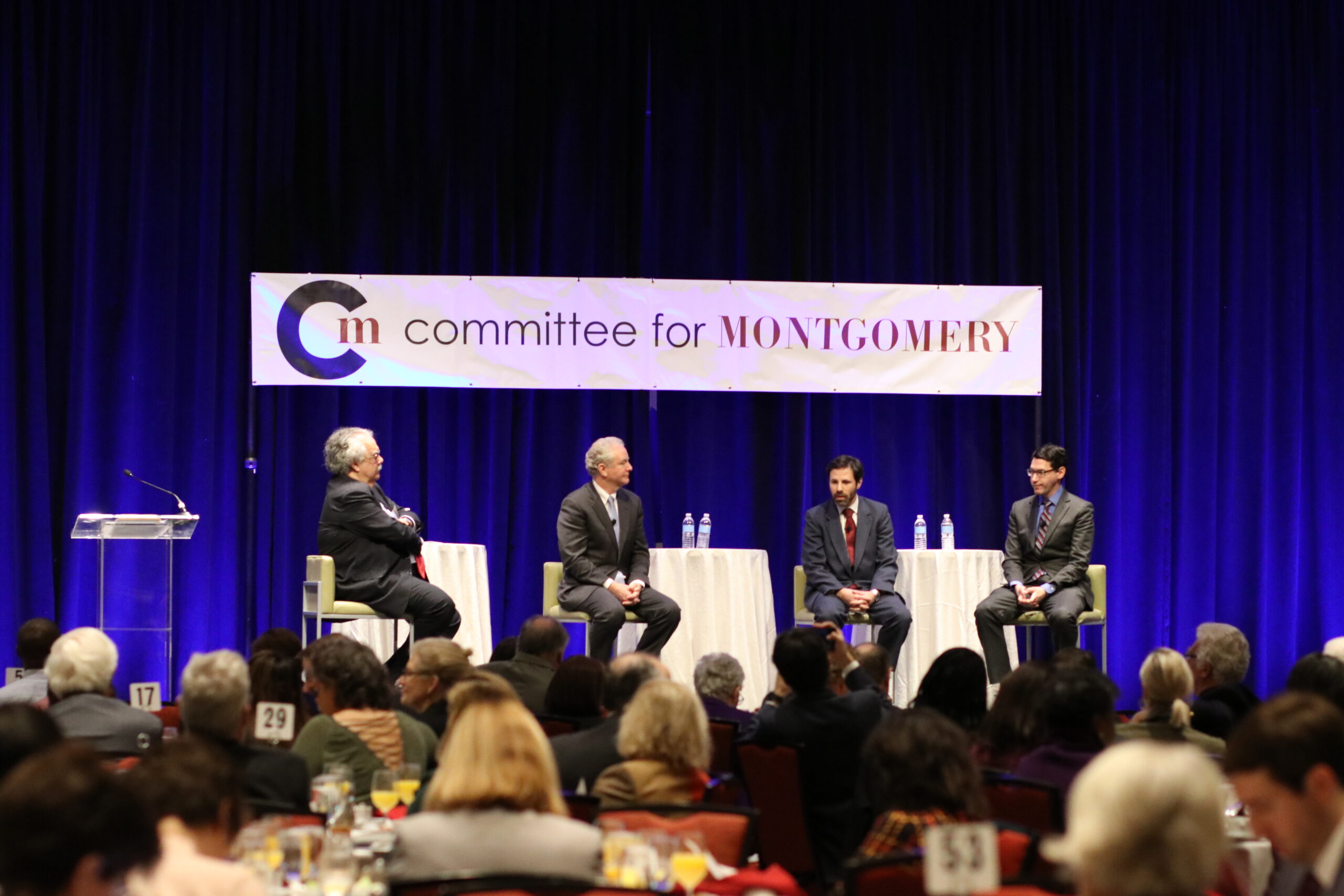Ex-Congressman on Haller’s Death: ‘I Have No Idea What I’m Going to Do’

Former congressman Michael D. Barnes (D) used to talk with Keith Haller on the phone.
Not once in a while. Not a quick catch-up, on the fly.
The two talked every morning, Barnes said. Usually for at least half an hour.
“We were remarkably close friends, for decades,” the four-term lawmaker said Wednesday of his former chief of staff, a pollster and political strategist — and Maryland Matters co-founder — who died a day earlier at 70 following a battle with cancer.
“I know this will sound like an exaggeration, but Keith and I spoke every day for the last 20 years. Every day.”
The calls were valuable, Barnes said, because he splits his time between Maryland and Florida, but still wants to keep up on what’s happening here.
“We’d start [the call] talking about sports. We’d go over the games that were played last night, what happened with the Capitals, what happened with the Wizards.
“And then we would shift to some big international issue, what’s happening somewhere in the world. He had a sense of anger about injustice… and that would get him focused on something going on in Africa or Asia or Latin America that he wanted to raise with me and go through.
“And then we’d shift to national politics and talk about that a little bit.
“And then something that I found particularly helpful, because he had his fingers in everything, he would tell the latest gossip. Everything that was going on in Annapolis and in Rockville. And it kept me, who had been — back in my day — very engaged in all of those issues personally, feeling like I’m still part of it.”
“He would tell me all the secrets!”
“It would be a half-hour call pretty much every day. And I just found it such an important part of my life and … now I have no idea what I’m going to do.
Barnes, 75, choked back emotion and had to pause his story.
“It’s just so damn hard.”
Haller wasn’t just a raconteur to Barnes.
The two shared political passions and activity dating back to the early 1970s, and their involvement in the late Maine Sen. Edmund S. Muskie’s presidential campaign.
“Keith had been active in the anti-war movement, student groups working against the Vietnam War,” Barnes said. “He and Lanny Davis and another fellow were the three key guys in the Muskie for President campaign working to get young people involved. And we became great, great friends.”
Haller managed Barnes’ campaign for Congress in 1978 against incumbent Rep. Newton Steers (R).
It was “a very, very long-shot race,” Barnes recalled. “We didn’t have any money and we were running against an incumbent that no one thought could be beaten.”
“We did it on a shoestring. He put together a grass-roots effort that was remarkable. It was not a good year for Democrats, ’78. It was the mid-term of [President] Carter. And I was the only Democrat in the country — that’s my memory, anyway — to upset a Republican incumbent.”
Haller followed Barnes to Capitol Hill, becoming his chief of staff.
“Keith’s genius was… his ability to organize grass-roots efforts,” Barnes said. “He was involved in so many great efforts, nationally and in Montgomery County. He was an extraordinary ‘ideas’ guy. He was a constant fountain of brilliant ideas. But he had the remarkable ability to come up with an idea and then help make it happen.”
One day, a young girl from Montgomery County sent her congressman a letter, expressing concern about hunger. She included her allowance — a dime — and asked that it be used to help people who didn’t have enough to eat.
“We were really moved by that in the office,” Barnes remembered. “And Keith said, ‘Thanksgiving is coming up. Why don’t we ask the people of Montgomery County to contribute to a hunger relief effort?’
“We all thought this was a good idea, so we did. We organized something called Montgomery County Hunger Relief. And Keith got all the ministers and rabbis and imams to come to a meeting at a church on Bradley Boulevard one afternoon, and we pitched them on becoming part of this effort. They all thought it was a great idea, and they all signed on to get their congregations to participate and to go door-to-door.
“I remember someone asked me, ‘How much do you hope to raise? And I said, ‘Well, at the moment we have 10 cents.’ I said, ‘Maybe we can raise $10,000.’ I had no idea.
“Well, my memory is we raised about $120,000 in that first Montgomery County Hunger Relief [drive]. And over the years we raised millions of dollars.”
Barnes said the decision was made to divide the money they raised, with a local food bank getting one-third, national groups getting one-third, and international groups getting one third.
“It was all Keith’s idea, really.”
Barnes has other Keith Haller stories. The Sunday night discussion group, in Haller’s living room on Capitol Hill, which became a Washington, D.C. think tank that still thrives to this day. The newsletter that became a magazine. The decision to hold an “issues conference” in Louisville one weekend and invite all the 1976 presidential candidates, all of whom came — along with 2,100 Democratic activists from around the country.
More recently, Haller and former Montgomery County councilman Bruce Adams (D) spearheaded the World of Montgomery, an event showcasing Montgomery’s cultural diversity. There was his advocacy for transportation projects like the Purple Line, his passion for local journalism (hence, his status as a co-founder of Maryland Matters), his belief in the value of the arts and so much more.
Haller’s public affairs and polling firm, Potomac, Inc., did work for countess political campaigns, corporations, utilities, non-profits and others.
“He could get disparate people who didn’t realize they had a mutual interest in solving some problem to get engaged in working together in a way that I’ve never seen from anybody else,” Barnes said. “And did he so many things in our community, Montgomery County, working with the medical community, working on education, just everything.
“He’d read the newspaper and get upset about some injustice and start to think, ‘OK, what can we do to solve this problem?’ And he had brilliant ideas, and some of them came to fruition.
“Keith was, next to my father, the finest person I’ve ever known. He had a sense of right and wrong that was powerful. And a hatred of racism and dishonesty and all the bad things that we see in society.
“I don’t know what I’m going to do. There’s going to be a gap in my life forever.”



 Creative Commons Attribution
Creative Commons Attribution